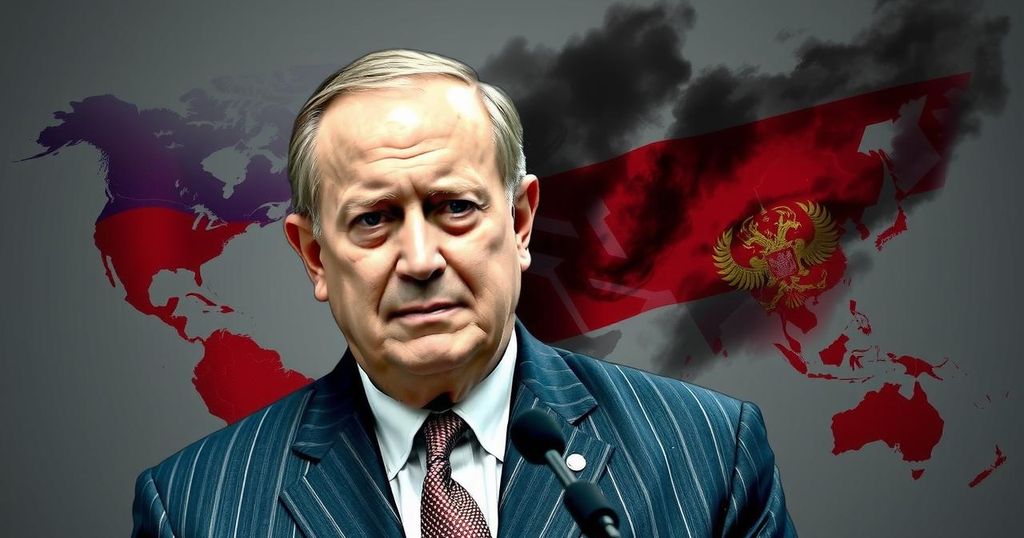The Fall of Assad: Implications for Russia’s Global Standing
Bashar al-Assad’s recent downfall in Syria is a significant setback for Russia, undermining its military and political influence established over nearly a decade. Moscow granted Assad asylum, reflecting its desperation, as state media shifts blame to the Syrian army for the regime’s collapse. Russia’s military presence in Syria is now under question, with officials addressing potential threats to Russian bases in light of the changing political landscape.
The recent downfall of Bashar al-Assad in Syria marks a significant blow to Russia’s influence and prestige in the region. For nearly a decade, Russian military support was critical in maintaining Assad’s regime. However, the rapid events of the past 24 hours resulting in Assad’s reported flight to Moscow and subsequent asylum granted by Russia, have showcased Moscow’s inability to control the Syrian situation. The Kremlin has issued statements of concern, reflecting their dismay over this unforeseen development.
Assad’s regime was central to Russia’s strategy of positioning itself as a dominant global power, diverging from Western influence. The 2015 military intervention aimed at bolstering Assad allowed President Putin to assert Russia’s military prowess. This intervention was initially labeled a success, with Putin declaring ‘mission accomplished’ during a visit to a Russian air base in Syria in 2017. Throughout these years, Russia had also secured valuable military bases in Syria in exchange for its support, raising questions about their future amidst the regime’s collapse.
Additionally, the Kremlin’s military presence in Syria seems increasingly precarious. Following the reports of Assad’s asylum in Moscow, Russian officials reportedly communicated with representatives of the Syrian opposition, who claimed the intention to ensure the safety of Russian military facilities. While the Russian foreign ministry has stated that these bases are under ‘high alert,’ they insist there is currently no serious threat.
Despite the Kremlin’s long-standing allegiance to Assad, Russian state media has begun to shift blame towards the Syrian army, critiquing their lack of resistance to the rebels. This narrative allows the Russian government to absolve itself of responsibility for this failure, emphasizing that domestic security concerns supersede issues in Syria. With such efforts to redirect public focus, the Russian authorities aim to mitigate backlash over their significant investment in maintaining Assad’s rule when faced with this setback.
Russia’s involvement in Syria began in 2015 when it deployed troops to support President Bashar al-Assad amid escalating conflict. This military intervention had strategic significance for Moscow, not only in terms of demonstrating military capabilities but also for solidifying Russia’s foothold in the Middle East. Over the years, Russia supported Assad’s regime to counter Western influence and to assert its status as a critical global power. Moscow secured agreements allowing it to maintain military bases, enhancing its strategic military options in the region. The fall of Assad, therefore, represents not just a political blow, but a potential loss of geopolitical leverage for Russia.
In summary, the fall of Bashar al-Assad after nearly a decade of support from Russia illustrates a severe blow to Moscow’s regional prestige and influence. The Kremlin now faces a challenging situation regarding its strategic military assets in Syria, as well as the ramifications of its failed investment in Assad’s regime. While Russian state media attempts to shift blame onto the Syrian army, the fundamental reality remains that Russia’s position in the Middle East is precariously compromised, forcing the government to reassess its priorities amid domestic issues, particularly in the context of its ongoing conflict in Ukraine.
Original Source: www.bbc.co.uk




Post Comment